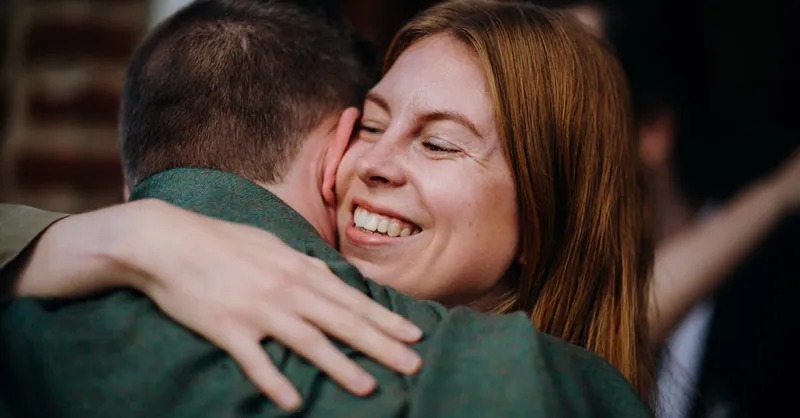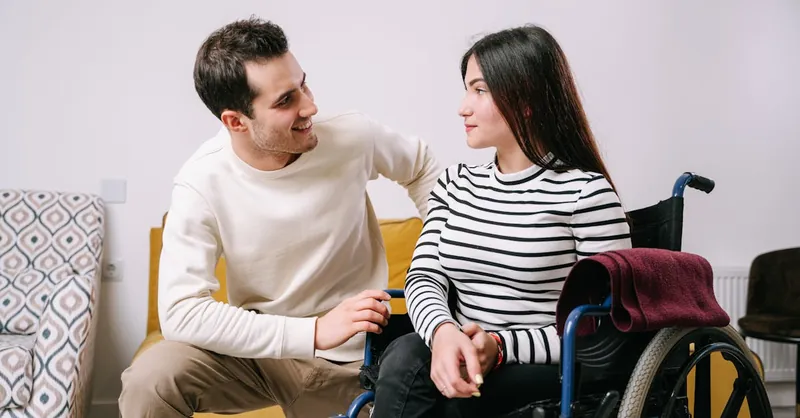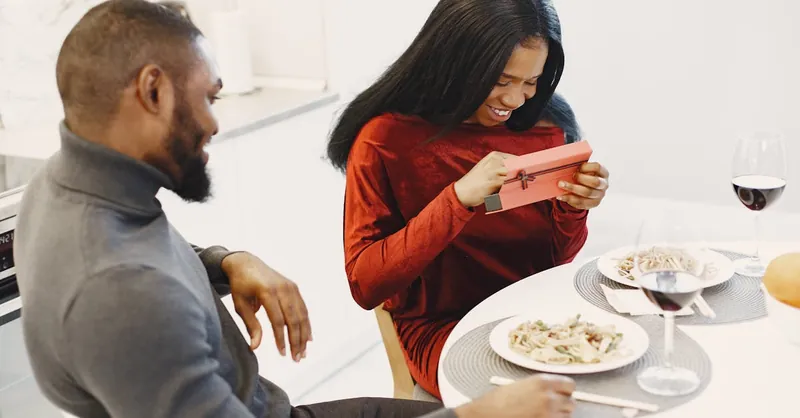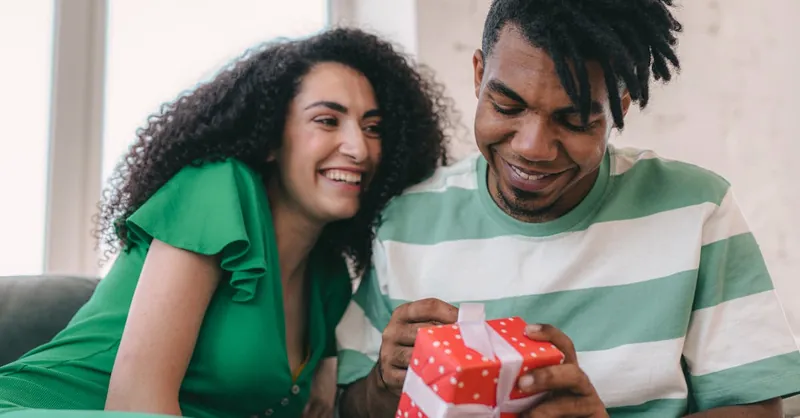How to Cultivate Gratitude in Relationships for Lasting Love
Category: Romance & Relationships
Unlock Deeper Connection: Cultivating Gratitude in Your Relationship
Navigating the emotional landscape of dating and maintaining intimate connections can sometimes feel overwhelming, especially when life’s demands chip away at everyday appreciation. Whether you're a single seeking healthier future relationships or a couple aiming to reignite warmth and closeness, understanding how to cultivate gratitude in relationships is a game-changer. You may already recognize the power of appreciation, but finding clear, actionable steps that truly transform your bond is what brought you here. This guide cuts through generic advice and offers practical insights specifically tuned to your quest for deeper romance, pleasure, and emotional fulfillment. With relatable advice tailored for varying intimacy levels, we'll explore how gratitude fosters resilience, boosts intimacy, and enhances pleasure by shifting mindset and habits. By the end, you'll be equipped with easy-to-apply strategies to strengthen your connection, whether through nurturing small daily moments or embracing meaningful communication. This post is your compass to foster gratitude that revitalizes your love life and supports joyful, lasting partnerships.
- Unlock Deeper Connection: Cultivating Gratitude in Your Relationship
- Understanding Gratitude in Romantic Relationships
- The Science Behind Gratitude and Relationship Satisfaction
- Recognizing Opportunities for Gratitude Daily: Practical Tips for Singles and Couples
- Communicating Gratitude Effectively: How to Express Appreciation Verbally and Non-Verbally to Deepen Intimacy and Trust
- Gratitude Practices to Strengthen Connection: Journaling, Thank-You Notes, and Shared Rituals
- Overcoming Common Barriers: Cultivating Gratitude Amid Skepticism and Relationship Challenges
- Using Gratitude to Enhance Romantic and Sexual Pleasure
- Integrating Gratitude into Dating and New Relationships: Guidance for Singles on Expressing Gratitude Authentically Early On
- Sustaining Gratitude Long-Term: Tips for Making Gratitude a Consistent Habit That Evolves With Your Relationship Stages
- Leveraging Gratitude to Resolve Conflict and Build Forgiveness: Techniques for Applying Grateful Perspectives During Disagreements
Understanding Gratitude in Romantic Relationships
Gratitude in romantic relationships goes beyond simply saying “thank you”—it is a profound acknowledgment of your partner’s presence, actions, and the shared experiences that build your bond. At its core, gratitude involves recognizing and appreciating the positive aspects of your relationship, both big and small, which cultivates emotional warmth and strengthens intimacy. This mindful appreciation nurtures a positive feedback loop where expressing gratitude encourages more loving behavior, deepening your connection over time.
Emotionally, gratitude serves as a powerful antidote to resentment, dissatisfaction, and negativity that often erode romantic partnerships. For individuals, practicing gratitude can lead to increased happiness, reduced stress, and improved self-esteem. For couples, it enhances emotional safety, promotes forgiveness, and boosts relationship satisfaction by fostering mutual respect and kindness. When gratitude becomes a shared habit, it acts as a resilient glue in your relationship, making it easier to navigate conflicts and celebrate pleasures together. Incorporating gratitude into your daily interactions—through genuine compliments, acknowledging effort, or savoring joyful moments—creates a fertile ground for lasting love, trust, and pleasure.

Image courtesy of Antoni Shkraba Studio
The Science Behind Gratitude and Relationship Satisfaction
Research consistently underscores the transformative impact of gratitude on romantic relationships, revealing its crucial role in enhancing bonding, building trust, and reducing conflict. Neuroscientific studies show that expressing gratitude activates brain regions associated with reward and social bonding, such as the ventromedial prefrontal cortex. This neurological response fosters positive emotions that deepen connection and intimacy between partners.
Beyond brain chemistry, empirical data links gratitude to tangible improvements in relationship satisfaction. Couples who regularly practice gratitude report higher levels of trust and emotional safety, which are foundational for enduring love. Specifically, gratitude encourages couples to focus on their partner’s positive qualities and actions rather than shortcomings, creating a buffer against negativity and criticism. This shift not only enhances mutual appreciation but also diminishes the frequency and intensity of conflicts.
A few key benefits of nurturing gratitude in your relationship include:
1. Strengthening Emotional Bonds: Gratitude cultivates feelings of closeness and attachment, reinforcing the emotional glue that holds partners together.
2. Boosting Trust: Regular expressions of appreciation signal reliability and support, which are essential for deep trust-building.
3. Reducing Relationship Stress: Grateful partners tend to experience less hostility during disagreements, promoting constructive communication instead of blame.
In sum, the science behind gratitude highlights its power as a catalyst for happier, healthier romantic connections, making it an indispensable practice for singles and couples striving for long-lasting satisfaction.

Image courtesy of Rene Terp
Recognizing Opportunities for Gratitude Daily: Practical Tips for Singles and Couples
Cultivating gratitude in your relationship begins with mindfully noticing the everyday moments that often go overlooked—both the small acts of kindness and the significant shared experiences. Whether you’re single, preparing for future connections, or part of a couple, developing the habit of seeking out opportunities for gratitude every day sets the foundation for sustained emotional intimacy and relational satisfaction.
For Singles: Building Awareness and Appreciation Internally
Before you can fully express gratitude toward a partner, start by recognizing what you value in yourself and your interactions with others. This internal practice helps you develop a positive mindset that attracts healthy, fulfilling relationships. Try these tips:
- Keep a daily gratitude journal focused on personal growth and social moments. Note small wins, compliments received, or enjoyable conversations.
- Reflect on past relationships or dates with appreciation for lessons learned or moments of joy. This reframes experiences positively and primes you for openness.
- Acknowledge your efforts toward self-love and dating readiness, such as taking time for self-care or pursuing interests that bring you happiness.
For Couples: Spotting and Honoring Both Small and Significant Gestures
In established relationships, gratitude flourishes when both partners make an effort to actively observe and verbalize appreciation for each other’s contributions—big or small. Here are practical ways to do this daily:
- Pause to acknowledge everyday actions: Whether your partner made coffee, sent a thoughtful text, or listened with empathy, these moments fuel connection when recognized.
- Celebrate milestones and shared memories regularly: Use anniversaries, achievements, or spontaneous celebrations as gratitude anchors to deepen your bond.
- Create rituals of appreciation: Consider starting or ending the day by sharing one thing you’re thankful for about each other, nurturing ongoing gratitude habits.
- Express gratitude non-verbally: Small touch, a smile, or a loving glance can convey your appreciation in powerful, intimate ways.
By consistently tuning into these opportunities to appreciate your partner or yourself, you develop a gratitude lens that transforms how you experience love, pleasure, and romance. This mindful awareness acts as a daily reminder of your relationship’s value and potential, making it easier to navigate challenges and savor joys together.

Image courtesy of Helena Lopes
Communicating Gratitude Effectively: How to Express Appreciation Verbally and Non-Verbally to Deepen Intimacy and Trust
Mastering the art of communicating gratitude is essential for cultivating deeper intimacy and strengthening trust in your romantic relationships. Expressing appreciation isn't just about saying "thank you"—it involves delivering your gratitude in ways that resonate authentically with your partner, reinforcing emotional safety and closeness. Effective gratitude communication combines both verbal and non-verbal methods that, when practiced consistently, invite more openness, enhance emotional connection, and create a pleasurable atmosphere of mutual respect and affection.
Verbal Expression: Clear, Specific, and Heartfelt Appreciation
The most impactful way to communicate gratitude verbally is through specific and sincere acknowledgment of your partner’s actions, qualities, or presence. Generic phrases can feel routine or insincere, whereas detailed appreciation highlights your attentiveness and genuine recognition. Try to:
- Use “I” statements to express how your partner’s behavior makes you feel, e.g., "I really appreciate how you listened to me today—it made me feel understood and cared for."
- Mention the exact action or characteristic you’re thankful for, avoiding vague compliments. This specificity signals mindful attention.
- Share the positive impact of their actions on your emotional wellbeing or the relationship. Highlight the ripple effect of gratitude to deepen meaning.
- Express your gratitude in a timely manner, ideally close to when the appreciated act occurs, to reinforce its value and relevance.
Non-Verbal Communication: The Power of Gestures Beyond Words
Non-verbal cues play a pivotal role in conveying appreciation, often expressing what words cannot fully capture. Affectionate touch, warm eye contact, genuine smiles, and thoughtful gestures serve as powerful contributors to your partner’s sense of being valued and loved. Regular use of these signals helps maintain an atmosphere of emotional warmth and safety by:
- Using physical touch such as holding hands, gentle caresses, or hugs to embody your gratitude and nurture physical intimacy.
- Maintaining eye contact during conversations that include gratitude to deepen emotional presence and attentiveness.
- Offering small acts of kindness or surprises as silent but impactful tokens of appreciation, signaling thoughtfulness and care.
- Mirroring your partner’s positive expressions and body language to build rapport and create a shared emotional space.
By weaving together thoughtful verbal acknowledgments with consistent non-verbal expressions of appreciation, couples can amplify feelings of trust and deepen emotional bonds that fuel ongoing passion and fulfillment. Whether you’re newly dating or long-term partners, refining how you communicate gratitude ensures your relationship remains a vibrant, pleasurable sanctuary where both individuals feel profoundly seen, heard, and cherished.

Image courtesy of Mikhail Nilov
Gratitude Practices to Strengthen Connection: Journaling, Thank-You Notes, and Shared Rituals
Incorporating gratitude practices into your daily life is one of the most effective ways to deepen emotional intimacy and build a resilient, joyful relationship. Whether you’re single looking to tune into appreciation that will attract fulfilling connections, or a couple seeking tangible ways to keep the spark alive, structured gratitude exercises help focus attention on what truly matters—enhancing attachment, trust, and pleasure. Here are some powerful, actionable practices that nurture gratitude mindsets and strengthen bonds over time:
1. Gratitude Journaling for Singles and Couples
Keeping a gratitude journal sharpens your ability to notice and savor the positive aspects of your romantic journey. For singles, journaling fosters self-appreciation and recognition of qualities you want to bring into future relationships, laying a foundation of positivity and openness. Couples can use journaling to reflect on shared experiences, appreciate each other’s efforts, and celebrate emotional growth.
Tips for effective gratitude journaling:
- Set aside 5-10 minutes daily or weekly to write down three specific things you appreciate about yourself, your partner, or your dating life.
- Include little moments—like a kind message, a meaningful conversation, or personal progress—that might otherwise go unnoticed.
- Reflect on how these points of gratitude have positively influenced your emotional well-being or romantic satisfaction.
2. Thank-You Notes: Expressing Appreciation Tangibly
Handwritten or thoughtfully composed thank-you notes serve as heartfelt tokens that convey genuine appreciation beyond casual verbal acknowledgments. They create lasting emotional impact by making your partner—or even a prospective partner—feel truly seen and valued. This practice nurtures emotional safety and reinforces the positive feedback loop integral to thriving relationships.
How to make thank-you notes meaningful:
- Focus on one specific action or quality you appreciate, explaining its significance to you.
- Deliver notes unexpectedly to surprise and delight your partner, enhancing feelings of gratitude and connection.
- For singles, writing thank-you notes to yourself or past partners (not necessarily sent) can help process emotions and cultivate a positive relationship mindset.
3. Shared Rituals: Creating Consistent Opportunities for Gratitude
Developing shared rituals centered on gratitude anchors your connection in repeated, intentional moments of appreciation that foster a warm relational atmosphere. These rituals act as emotional touchstones, helping partners reconnect and realign amid the ebb and flow of daily life. Rituals can be simple, joyful, and customized to your relationship style.
Ideas for gratitude-focused shared rituals:
- Begin or end each day by sharing one thing you’re grateful for about your partner or your relationship.
- Take turns expressing appreciation during weekly “relationship check-ins” or date nights.
- Create gratitude jars where each person writes down appreciations on slips of paper to read aloud or review together later.
By integrating these gratitude practices into your dating or relationship routine, you build a sustainable framework for emotional closeness, resilience, and mutual delight. These exercises encourage mindfulness and intention around appreciation, ensuring that gratitude becomes an active, living part of your romantic connection that enhances pleasure and intimacy continuously.

Image courtesy of RDNE Stock project
Overcoming Common Barriers: Cultivating Gratitude Amid Skepticism and Relationship Challenges
While the benefits of gratitude in relationships are clear, many singles and couples face common barriers such as skepticism, negativity bias, and emotional hardship that can hinder their ability to genuinely embrace appreciation. Skepticism may arise when past experiences have led to disappointment or distrust, making gratitude feel superficial or undeserved. Additionally, our brains are naturally wired with a negativity bias—a survival mechanism that makes us more sensitive to threats and critical feedback than positive experiences. This bias can make it difficult to focus on gratitude during moments of conflict, stress, or emotional distance.
To overcome these barriers and cultivate gratitude even during relationship challenges, it’s essential to intentionally shift your mindset and build resilience through practical strategies:
-
Acknowledge and validate difficult emotions first. It’s okay to recognize frustration, hurt, or doubt without judgment. This honest emotional acknowledgment creates space to later introduce gratitude without forced positivity.
-
Practice reframing negative situations by finding small silver linings. For example, conflicts can be opportunities to understand each other’s needs more deeply, and struggles may highlight your partner’s patience or commitment.
-
Set realistic expectations about gratitude as a skill that deepens over time rather than an immediate fix. Like any relational practice, gratitude requires patience and consistency to counteract ingrained biases.
-
Create gratitude anchors during neutral or positive moments. Carrying these positive memories forward helps balance the natural pull of negativity during tough times.
-
Use gratitude to enhance empathy and compassion, reminding yourself that both you and your partner are human, imperfect, and deserving of appreciation even on off days.
By consciously confronting skepticism and negativity bias, you empower yourself and your partner to access gratitude as a sustaining resource that enriches emotional intimacy and promotes healing. This resilient gratitude mindset allows relationships to thrive not only in moments of pleasure but also through inevitable challenges, fostering enduring connection and trust.

Image courtesy of Ivan Samkov
Using Gratitude to Enhance Romantic and Sexual Pleasure
Gratitude plays a transformative role not only in emotional intimacy but also in amplifying romantic and sexual pleasure within relationships. When partners consistently express appreciation for each other, it creates a safe, affirming environment where vulnerability and desire can flourish. This atmosphere of mutual respect and acknowledgment heightens emotional satisfaction, which directly influences the quality of physical intimacy.
How Gratitude Boosts Emotional Satisfaction and Physical Connection
- Increases Emotional Safety: Feeling genuinely appreciated lowers defenses and anxieties, allowing partners to relax and fully engage emotionally and physically during intimacy.
- Enhances Positive Neurochemistry: Expressions of gratitude stimulate the release of oxytocin and dopamine—neurotransmitters closely linked to bonding, pleasure, and trust—strengthening both emotional and sexual connections.
- Fosters Mindful Presence: Gratitude encourages you to savor moments with your partner, shifting focus from performance or distractions to shared sensations and feelings, thereby intensifying pleasure.
- Builds Anticipation and Desire: Recognizing and expressing admiration for your partner’s unique qualities and efforts can spark excitement and keep desire vibrant over time.
Practical Ways to Cultivate Gratitude for Deeper Intimacy and Sexual Fulfillment
- Verbalize appreciation before, during, and after intimate moments. Simple acknowledgments like “I love how you make me feel” or “I appreciate your tenderness” can deepen connection.
- Acknowledge your partner’s efforts and responsiveness, reinforcing their emotional safety and encouraging reciprocal generosity in pleasure-giving.
- Create gratitude-focused intimacy rituals, such as sharing what you enjoy about each other’s touch or presence, to heighten awareness and anticipation.
- Use gratitude to navigate vulnerability, helping partners feel supported when exploring new desires or addressing insecurities.
By integrating gratitude as a foundational element in your romantic and sexual relationship, you amplify mutual satisfaction across emotional and physical domains. This mindful appreciation not only nurtures enduring love but also transforms intimate encounters into profound expressions of connection and pleasure.

Image courtesy of Gustavo Fring
Integrating Gratitude into Dating and New Relationships: Guidance for Singles on Expressing Gratitude Authentically Early On
Starting a new romantic relationship offers a unique opportunity to lay a foundation of gratitude that fosters trust, warmth, and emotional openness from the very beginning. For singles navigating the dating world, expressing gratitude authentically in early interactions sends a powerful signal of appreciation and respect, paving the way for deeper connection and mutual understanding. Rather than overwhelming a new partner with excessive praise or seeming insincere, cultivating a genuine gratitude practice helps you stand out and encourages vulnerability without pressure.
How Singles Can Express Gratitude Authentically Early On
-
Be Mindful and Specific: When expressing thanks or appreciation during dates or conversations, focus on specific moments or qualities that genuinely moved or delighted you. For example, “I really enjoyed how you shared your passion for [interest], it’s inspiring.” Specificity conveys attentiveness and sincerity, which are essential for building trust.
-
Balance Gratitude with Curiosity: Combine expressions of gratitude with thoughtful questions or reflections about your date’s feelings and experiences. This approach demonstrates that your appreciation is not just surface-level but is part of a deeper interest in understanding who they are.
-
Use Appreciation to Build Emotional Safety: Early on, gratitude can reduce social anxiety and create a relaxed atmosphere that invites authentic sharing. Complimenting kindness, openness, or humor gently affirms your partner without rushing intimacy.
-
Stay Grounded in Yourself: Express your genuine feelings without overextending or people-pleasing. Authentic gratitude arises when you honor your own emotional experience, which encourages reciprocal honesty from your date.
-
Leverage Non-Verbal Gratitude Cues: Simple, respectful gestures such as warm smiles, open body language, or a sincere nod during conversations can powerfully reinforce your verbal appreciation and foster connection.
By integrating these gratitude habits into your early dating experiences, you not only elevate the quality of your interactions but also attract partners who value emotional presence and kindness. This authentic expression of appreciation helps you build relationships rooted in respect and genuine connection, setting the stage for enduring romance and intimacy as your relationship evolves.

Image courtesy of Pavel Danilyuk
Sustaining Gratitude Long-Term: Tips for Making Gratitude a Consistent Habit That Evolves With Your Relationship Stages
Building gratitude is just the beginning; the true power lies in sustaining gratitude consistently over time as your relationship naturally shifts through different stages. Whether you’re progressing from early courtship to deep commitment or navigating the quieter rhythms of long-term partnership, maintaining an evolving gratitude practice nurtures resilience and emotional vitality that withstands life’s changes.
To make gratitude a lasting habit, start by embedding it into your daily routines with intentional, adaptable strategies:
-
Regularly revisit and update what you’re grateful for: As your relationship matures, the forms of appreciation will shift—from initial attraction and small gestures to deeper values like loyalty, shared growth, and emotional support. Make it a habit to periodically reflect on these changing dimensions to keep your gratitude fresh and relevant.
-
Create flexible gratitude rituals that evolve together: A morning gratitude check-in might work well during the honeymoon phase, while weekly gratitude conversations or gratitude jars can become anchors during busy or challenging seasons. Be open to adjusting the frequency and format to suit your current needs, ensuring gratitude remains a natural part of your connection.
-
Integrate gratitude with active relationship maintenance: Pair gratitude expressions with other bonding behaviors like active listening, conflict resolution, and affectionate touch. This synergistic approach reinforces positive cycles that deepen intimacy and prevent complacency.
-
Practice personal gratitude growth alongside partner appreciation: Your ability to recognize and express gratitude expands as you grow individually. Seek personal development tools such as mindfulness, therapy, or coaching to enhance your emotional awareness, which directly benefits your relational gratitude capacity.
By making gratitude a flexible, dynamic practice that evolves with your relationship stage, you not only preserve its presence but also amplify its impact. This consistent gratitude foundation enables couples and singles alike to deepen connection, enrich emotional safety, and cultivate a joyful relational culture that adapts and thrives through time.

Image courtesy of SHVETS production
Leveraging Gratitude to Resolve Conflict and Build Forgiveness: Techniques for Applying Grateful Perspectives During Disagreements
Conflict is an inevitable part of any romantic relationship, but cultivating gratitude during disagreements transforms tense moments into opportunities for growth, understanding, and forgiveness. When partners intentionally shift their focus from blame to appreciation—even in conflict—they create a more constructive emotional environment that fosters empathy and repair. This grateful perspective softens defenses, reduces reactive behaviors, and opens the door to honest communication rooted in respect.
Techniques to Apply Gratitude in Conflict Resolution
-
Pause and Acknowledge Positive Intentions: Even when emotions run high, remind yourself of your partner’s positive qualities and past acts of kindness. This mental acknowledgment acts as a buffer against harsh judgments and helps you approach the conflict with gentler eyes.
-
Express Gratitude for Effort, Not Just Outcomes: Recognize your partner’s willingness to engage in dialogue or their attempt to understand your perspective, regardless of whether the issue is fully resolved. Appreciating effort reinforces collaboration over competition.
-
Use “Gratitude Statements” to Soften the Tone: Incorporate phrases like, “I appreciate that you’re listening,” or “Thank you for sharing your feelings with me,” to validate your partner’s involvement and reduce emotional defensiveness.
-
Reframe Challenges as Shared Growth Opportunities: Viewing disagreements through a lens of gratitude for the chance to deepen understanding and build resilience strengthens relational bonds and encourages forgiveness.
How Gratitude Supports Forgiveness and Reconciliation
Gratitude nurtures forgiveness by allowing you to focus on your partner’s virtues rather than their mistakes, which can diminish resentment and foster emotional release. When you consciously appreciate the relationship’s value—even amid discord—you empower both yourself and your partner to move beyond hurt with compassion and renewed commitment. This practice is especially powerful in long-term partnerships where accumulated grievances might otherwise erode intimacy. By integrating gratitude as a conflict-resolution tool, couples and singles alike develop a proactive strategy that reinforces trust and emotional safety, ultimately sustaining lasting connection and satisfaction.

Image courtesy of Rhema
